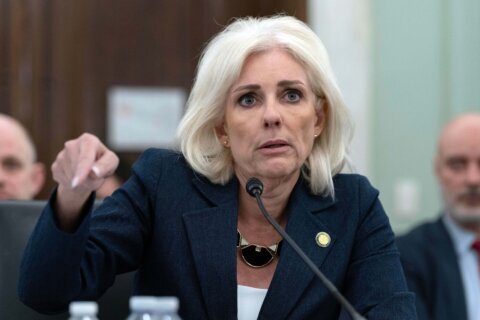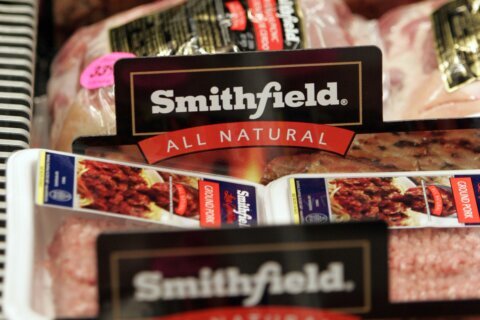This article was reprinted with permission from Virginia Mercury.
As Virginians gather around the table for some Thanksgiving turkey, the state’s first shipment of turkey products are headed to India, thanks in part to the work of the state’s two U.S. senators.
Earlier this month, Sen. Mark Warner announced that India will receive the frozen birds after reduced tariffs facilitated the first shipment
“Obviously you’ve got a big turkey industry in the Shenandoah Valley,” Warner said during a press conference on Nov. 14. “We have been fighting for some time to get the markets of India and Turkey, (the) country Turkey, open. That has now taken place.”
According to the U.S. Department of Agriculture, Virginia was the country’s sixth largest producer of turkeys in 2023 with 15.5 million birds, while its North Carolina neighbor ranked second with 29 million birds. Minnesota had the most with 38.5 million birds.
In 2021, Virginia’s turkey production contributed to the overall poultry industry’s economic impact of $5.8 billion directly to Virginia’s economy. John King, president of the Virginia Poultry Growers Cooperative, said in a statement that the shipment to India “will directly benefit our nearly 200 independent grower owners.”
The shipment earlier this month occurred after Ambassador Katherine Tai, the U.S. trade representative, worked with India to get the country to reduce tariffs on frozen turkey, frozen duck and fresh frozen, dried and processed blueberries and cranberries.
In June 2023, before Indian Prime Minister Narendra Modi visited the United States, Warner, Sen. Tim Kaine and five other senators sent a letter to Tai urging her to work to get India to reduce the tariff, which amounted to an additional 30% duty, or fee. In September, Tai announced the tariff for turkey products dropping to 5%.
“Resolving this last outstanding (World Trade Organization) dispute represents an important milestone in the U.S.-India trade relationship, while reducing tariffs on certain U.S. products enhances crucial market access for American agricultural producers,” Tai said in a statement.
The demand for turkey is “strong” in India, said Shana Oshinskie, a spokesperson for Warner’s office, “driven in part by their robust population growth, lack of a domestic alternative, and increasing protein need.”
According to the World Health Organization, the population of India is expected to increase to about 1.7 billion people by 2050. In 2016, the Indian Council of Agricultural Research, produced a report outlining ways to increase domestic turkey rearing and called the birds’ meat “the leanest among other poultry species with lower fat and cholesterol content compared to red meat.”
“This is part of Sen. Warner’s broader push to strengthen our economic and diplomatic ties with India, one of our most key partners, and this move particularly benefits Virginia’s sizable population of poultry producers,” Oshinskie added.
King, by phone interview, said his group had sales of turkey’s at a rate of about 17.7 pounds per person when the group started 20 years ago, but that’s dropped to about 13.9 pounds per person this year due to bird illnesses, limited supply and rising costs. While Mexico “continues to be a great trading partner,” markets in China have become “not as reliable,” King said, prompting the desire to seek the populous India.
“We need some help in the export markets,” King said.
The first shipment of frozen turkey products raised by the Virginia Poultry Growers Cooperative left the U.S. out of the Port of Virginia. They’re expected to arrive in the country in the coming weeks, Oshinskie said.







